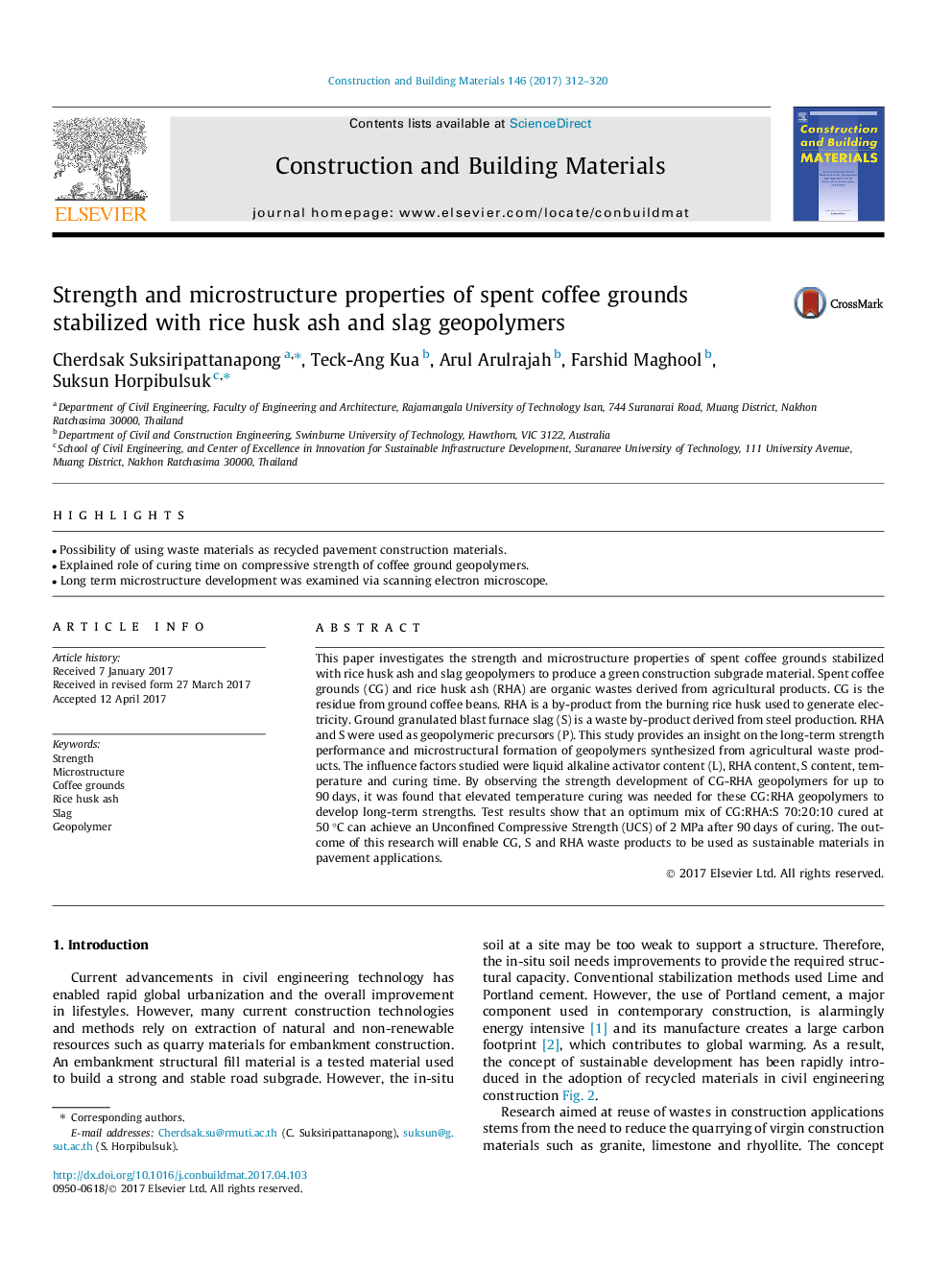| Article ID | Journal | Published Year | Pages | File Type |
|---|---|---|---|---|
| 4913305 | Construction and Building Materials | 2017 | 9 Pages |
Abstract
This paper investigates the strength and microstructure properties of spent coffee grounds stabilized with rice husk ash and slag geopolymers to produce a green construction subgrade material. Spent coffee grounds (CG) and rice husk ash (RHA) are organic wastes derived from agricultural products. CG is the residue from ground coffee beans. RHA is a by-product from the burning rice husk used to generate electricity. Ground granulated blast furnace slag (S) is a waste by-product derived from steel production. RHA and S were used as geopolymeric precursors (P). This study provides an insight on the long-term strength performance and microstructural formation of geopolymers synthesized from agricultural waste products. The influence factors studied were liquid alkaline activator content (L), RHA content, S content, temperature and curing time. By observing the strength development of CG-RHA geopolymers for up to 90 days, it was found that elevated temperature curing was needed for these CG:RHA geopolymers to develop long-term strengths. Test results show that an optimum mix of CG:RHA:S 70:20:10 cured at 50 °C can achieve an Unconfined Compressive Strength (UCS) of 2 MPa after 90 days of curing. The outcome of this research will enable CG, S and RHA waste products to be used as sustainable materials in pavement applications.
Related Topics
Physical Sciences and Engineering
Engineering
Civil and Structural Engineering
Authors
Cherdsak Suksiripattanapong, Teck-Ang Kua, Arul Arulrajah, Farshid Maghool, Suksun Horpibulsuk,
